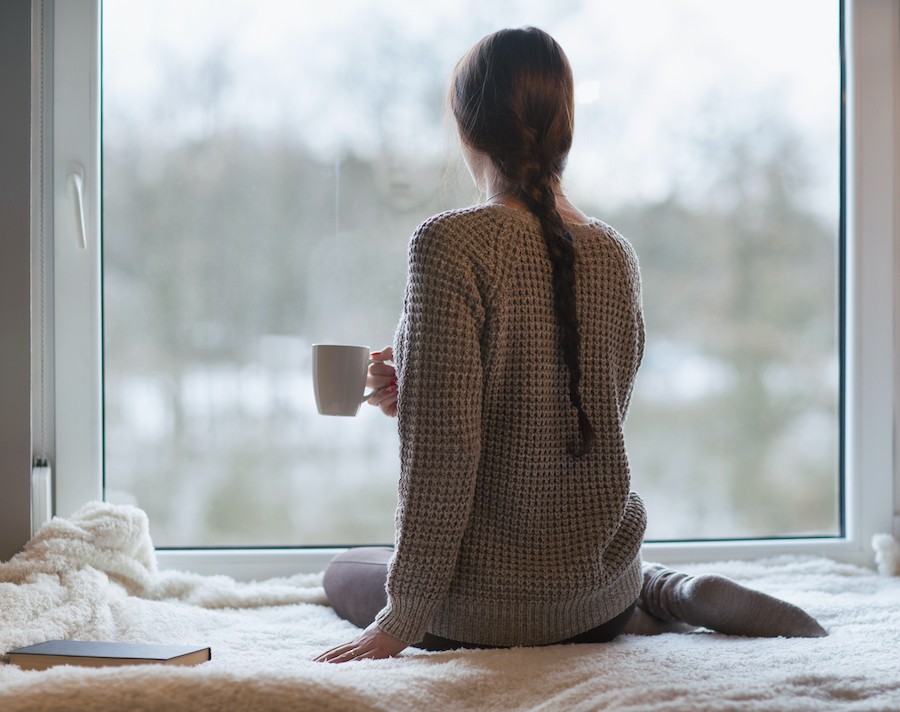Coronavirus: A look at the psychological impact isolation has on our wellbeing

Infectious disease outbreaks, like the Coronavirus (Covid-19), can cause fear and impact our mental health.
Coronavirus is now affecting more than 27 countries, raising concerns of widespread panic and increasing anxiety in individuals subjected to the (real or perceived) threat of the virus. This type of increased stress can also be followed by anxiety-related behaviours such as sleep disturbances, and overall lower perceived state of health. Current recommendations for diagnosed cases is quarantine.
The impact of this isolation can have a severe impact on the mental health. Here at Onebright, we are helping people manage the stresses of quarantine by delivering therapy to both organisations and international clients via secure video link.
In this article we will discuss the psychological impact isolation has on our wellbeing, but first here are some key messages outlined in The Lancet Report, The psychological impact of quarantine and how to reduce it: rapid review of the evidence
Key messages
- Information is key; people who are quarantined need to understand the situation
- Effective and rapid communication is essential
- Supplies (both general and medical) need to be provided
- The quarantine period should be short and the duration should not be changed unless in extreme circumstances
- Most of the adverse effects come from the imposition of a restriction of liberty; voluntary quarantine is associated with less distress and fewer long-term complications
- Public health officials should emphasise the altruistic choice of self-isolating
Last year, the seasonal flu killed 10,000 people and caused millions to get sick. It is familiar; we are aware of its symptoms. But as a new strain of virus emerges, a significant amount of stress arises for some individuals as the constant reminder of these threats infiltrates our private and public lives.
At Onebright, we realise that the idea of mass quarantine is not always about the sickness itself, but rather, it is the stigma, isolation, communication and fear of infecting our family and friends that affects our mental health.
Director of Clinical and Business Operations at Onebright, Shamira Graham reading from the Lancet Report said “Of the 24 studies reviewed, most reported negative psychological effects including post-traumatic stress symptoms, confusion, and anger. Stressors included longer quarantine duration, infection fears, frustration, boredom, inadequate supplies, inadequate information, financial loss, and stigma.”
At the end of January this year, The World Health Organization (WHO) declared the Corona Virus a public health emergency. It is the sixth such emergency since 2009, and the difference between this one and previous crises is the amount of information (or disinformation) that has been published. WHO labelled it an ‘Infodemic’. As a result, it is normal for individuals to develop a distrust for all facts when some of the ‘Facts’ may have come from a place that has imperfect information.
Firstly, information is critical. People who are placed in quarantine need to understand their situation. The frustration that comes with being given multiple messages or contradictory information can be a significant cause for patients assuming the worst and panicking.
Dr. Baruch Fischhoff, a professor at Carnegie Mellon University and an expert on public perception, states: “The most useful thing that people can do at this stage is to find some trusted sources of information. Centres for Disease Control and Prevention, or the World Health Organization, and stick to them for information.”
Building trust can be one of the hardest things to do, but hearing a rational and kind voice can be very therapeutic for individuals who are not coping with the isolation and hysteria of the coronavirus.
Secondly, it is the ease of access to essential supplies that will encourage individuals to become more inclined to voluntary quarantine. Although no studies have proven that voluntary quarantine has a differential effect on wellbeing, there has been clear evidence to support that stresses reduce when people clearly understand the benefits their actions will have on those around them.
Cognitive Behavioural Therapy acts as a complementary support that can help you feel comfortable enough to ask for the resources you need to get through periods of isolation or the associated sigma. At Onebright, our BABCP accredited therapists are leaders in their industry and are available through different mediums to ensure you never have to go through anything alone, even during isolating times.
Lastly, if you do become exposed to the Corona Virus and fall ill, self-isolation is the best way to ensure you do not contribute to its spread. Become educated and emphasise the altruistic choice you made to self-isolate. Stigma surrounding coronavirus has impacted many individuals; not only by the quarantined but also by those in the Chinese and Asian communities. With better, more accurate information coming out, isolating yourself should be seen as a public service. Reducing the liberties of an individual is always a contentious issue for politicians and public health officials. However, by talking to a Cognitive Behavioural Therapist, we can ease the psychological effects of this process.
At Onebright, we are proud to say we are working on helping people manage the stresses of quarantine by delivering therapy to many organisations and international clients via secure video link. A healthy mind in a healthy body ensures we can all get through this with the least amount of psychological impact possible.
If you are currently in quarantine or experiencing a deep-seated fear in regards to your health, we are always here to talk. Our therapists are specialists in their field and cover all topics relating to mental wellbeing in a safe, caring and constructive environment.
